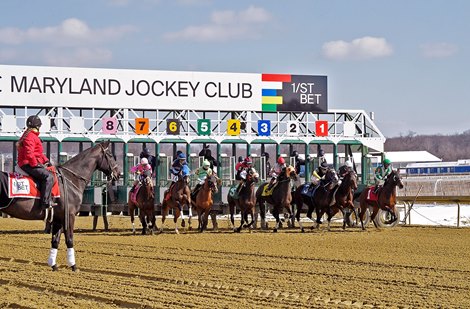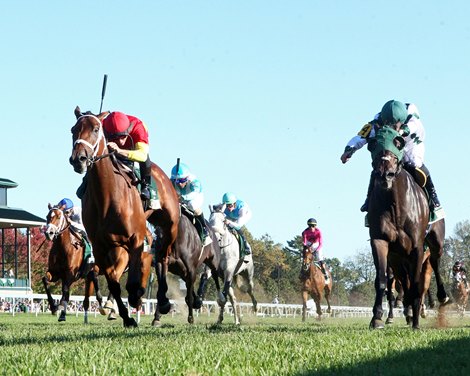A federal lawsuit filed by Bob Baffert against Churchill Downs Inc. and two of its principal officers was dismissed on May 24 by a Louisville judge.
Judge Rebecca Grady Jennings entered summary judgment dismissing the case. The dismissed parties are Churchill Downs Inc., William C. Carstanjen, and R. Alex Rankin. Carstanjen is CDI’s chief executive officer, and Rankin is chairperson of its board of directors.
The suit arose when Churchill Downs banned Baffert from stall space and entering horses in races at CDI-owned tracks for a period of two years after June 2, 2021. Churchill’s announcement was made shortly after Medina Spirit tested positive for betamethasone in the 2021 Kentucky Derby (G1).
CDI’s ban was not based strictly on the outcome of the Medina Spirit drug positive, but rather on the terms and conditions of Baffert’s stall agreement with the track. Based on the drug positive, stewards later fined Baffert, suspended him from racing for 90 days, and disqualified Medina Spirit.
The stewards’ suspension order against Baffert survived multiple attempts by his attorneys to obtain a judicial stay, and he missed the 2022 Kentucky Derby without Churchill’s two-year ban coming into play. A hearing on appeals of the stewards’ rulings by Baffert and owner Amr Zedan was conducted last year by a hearing officer for the Kentucky Horse Racing Commission. A decision is pending.
Sign up for BloodHorse Daily
Baffert attempted to thwart Churchill’s two-year ban before the 2023 Derby, but Jennings denied his motion for preliminary injunction in February.
Because horses in the embattled trainer’s care were not eligible for Kentucky Derby points as long as he was banned from racing at Churchill Downs, Jennings’ decision sprung the latch on a transfer of several potential Derby candidates out of Baffert’s barn. Only one of them, Reincarnate , made the Derby field. Trained by Tim Yakteen, Reincarnate finished 13th after prompting a hot early pace for six furlongs. Baffert went on to win the Preakness Stakes (G1) two weeks later with National Treasure .
In a 12-page memorandum opinion and order issued May 24, Jennings recounted that following a hearing on Baffert’s preliminary injunction motion, the court dismissed Baffert’s claims for unlawful exclusion from Churchill’s tracks, unlawful conspiracy in restraint of trade, unlawful use of monopoly power, tortious interference with contractual relations, and tortious interference with prospective business relations. The summary judgment dismissed Baffert’s only remaining claim, that he was denied due process of law when Churchill Downs Inc., a private corporation, barred him.
A due process claim ordinarily involves an alleged deprivation of rights via state action. Churchill Downs treated itself as a state actor in its motion to dismiss Baffert’s case, and as a consequence, Jennings did not rule on that issue.
Instead, she agreed with case law cited by Churchill that Baffert’s state-issued trainer’s license had to be rendered valueless in order for him to assert a viable claim. Since Baffert testified he won more than $1 million at Keeneland while suspended by Churchill, Jennings concluded the trainer’s license had not been rendered valueless by Churchill’s ban.
Writing that “Plaintiffs have failed to produce specific evidence creating a genuine issue of material fact that would allow a reasonable jury to find in their favor at trial,” Jennings ordered the case dismissed without ruling on other potential issues.
Baffert’s case was decided in United States District Court for the Western District of Kentucky. His recourse is to ask for a reconsideration from Jennings and to appeal to the U.S. Sixth Circuit Court of Appeals in Cincinnati. His ban from CDI-owned tracks is set to expire in early June.










Leave feedback about this